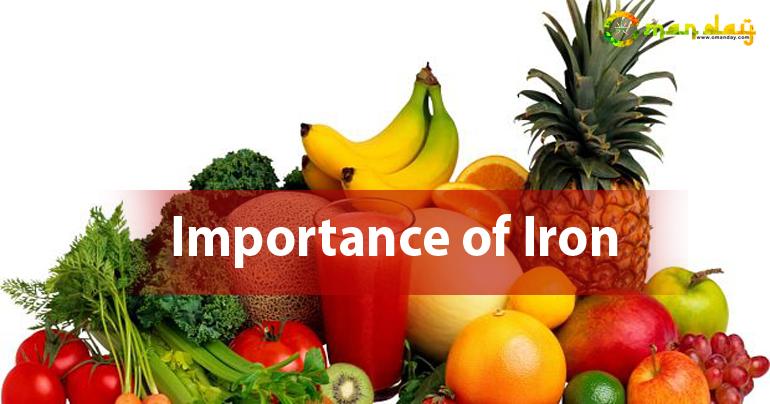Importance of Iron

Iron deficiency is the most widespread nutritional disorder in the world, although many are oblivious to the fact they suffer from it, says Matt Blackwell
Iron is the most widely used of all metals, accounting for 95 per cent of worldwide metal production, so perhaps it is inevitable that building construction and machinery are the first things that come to mind in any conversation about it. But it’s also an essential part of our biological make up. In fact, the very colour of our blood is due to the haemoglobin – an iron-containing protein – in our bodies.
The dietary mineral is part of numerous enzymes responsible for digesting foods and other important reactions within our bodies and is also present in all our cells, helping with many functions. Iron aids the flow of oxygen from our lungs throughout the body and plays an essential role in the way muscles store and use oxygen.
However, according to World Health Organization (WHO) figures, two billion people worldwide – that’s more than 30 per cent of the world’s population – are anaemic, many due to iron deficiency, making it the most common nutritional disorder in the world.
Professor Al Khalafallah, consultant haematologist at Launceston General Hospital in Tasmania, Australia, has gone as far to say that the condition could have “a devastating effect on entire populations with serious consequences”. Speaking to Australian health website bodyandsoul.com.au, the professor says: “I wouldn’t be exaggerating to say that iron deficiency and iron deficiency anaemia are the most serious chronic conditions affecting people [worldwide].”
What’s more, while experts have described it as the most debilitating nutritional deficiency today, many people won’t even know they are suffering from the condition, such is the lack of awareness. The WHO believes that the numbers of those with iron deficiency constitutes “a public health condition of epidemic proportions” and has consequently assembled a taskforce to develop a comprehensive package of public health measures addressing all aspects of the deficiency. Iron deficiency exacts its heaviest toll in terms of ill health, premature death and lost earnings.
Iron deficiency is a condition that affects people from all sectors of society in developing and developed countries alike. When our iron stores are depleted it can lead to loss of motor and mental function in infants; affect memory in teens; impair the ability to do physical work in adults and increase the risk of pregnant women having a premature baby, which in turn are more likely to have health problems or die in their first year.
It seems the Sultanate’s shores are not safe from the deficiency either. “Iron deficiency in Oman is mostly seen in weaning children between nine and 18 months, in adolescent girls and among pregnant women,” says Jishy Seby, a diet consultant at KIMS Oman Hospital in Muscat. “A healthy nutritious diet definitely helps in preventing iron deficiency anaemia. Many foods available in supermarkets, such as beef liver, red meat and dried fruit are fortified with iron, which helps to reduce the incidence of the deficiency.
...[ Continue to next page ]
Share This Post






